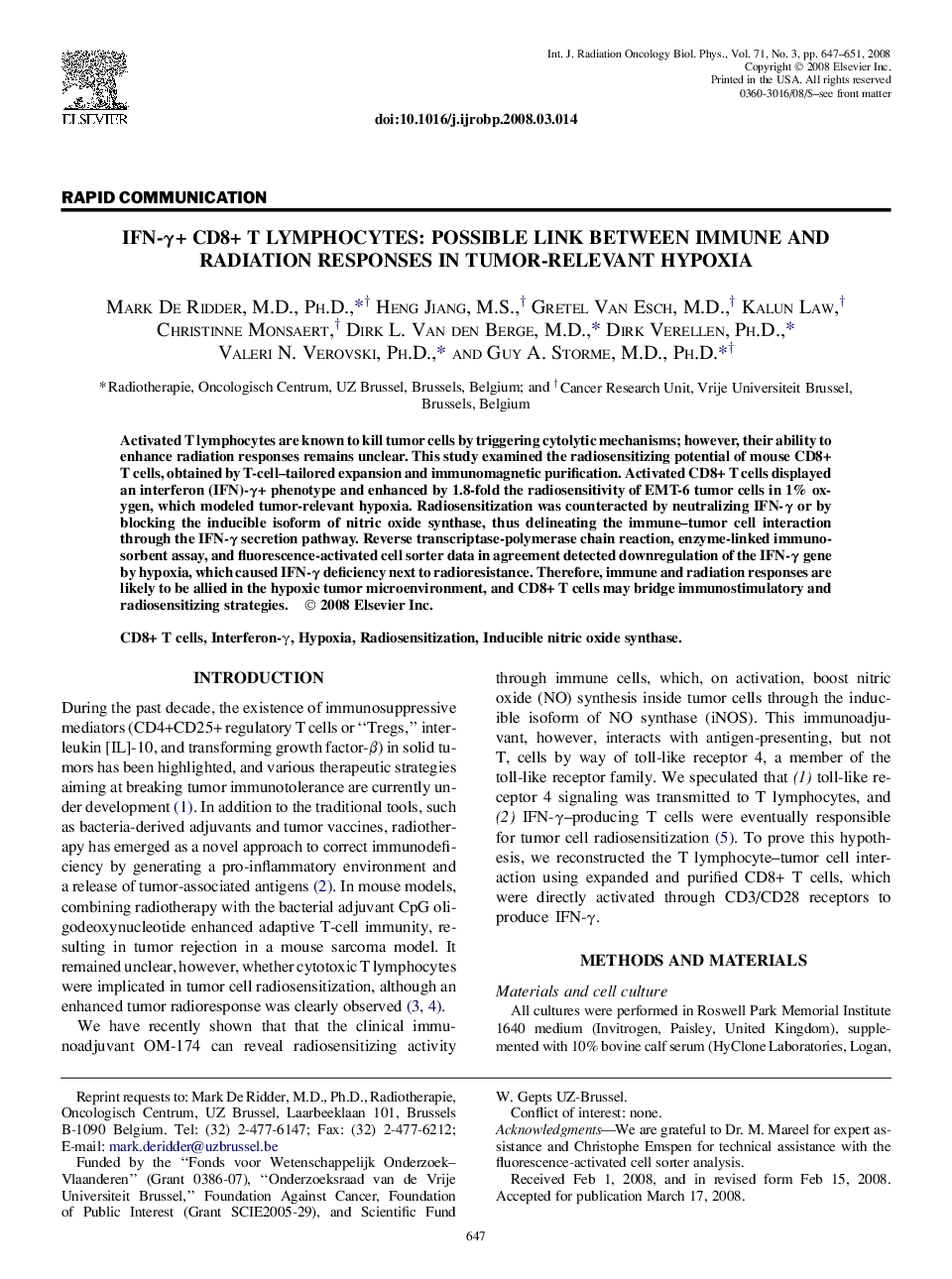| Article ID | Journal | Published Year | Pages | File Type |
|---|---|---|---|---|
| 8238454 | International Journal of Radiation Oncology*Biology*Physics | 2008 | 5 Pages |
Abstract
Activated T lymphocytes are known to kill tumor cells by triggering cytolytic mechanisms; however, their ability to enhance radiation responses remains unclear. This study examined the radiosensitizing potential of mouse CD8+ T cells, obtained by T-cell-tailored expansion and immunomagnetic purification. Activated CD8+ T cells displayed an interferon (IFN)-γ+ phenotype and enhanced by 1.8-fold the radiosensitivity of EMT-6 tumor cells in 1% oxygen, which modeled tumor-relevant hypoxia. Radiosensitization was counteracted by neutralizing IFN-γ or by blocking the inducible isoform of nitric oxide synthase, thus delineating the immune-tumor cell interaction through the IFN-γ secretion pathway. Reverse transcriptase-polymerase chain reaction, enzyme-linked immunosorbent assay, and fluorescence-activated cell sorter data in agreement detected downregulation of the IFN-γ gene by hypoxia, which caused IFN-γ deficiency next to radioresistance. Therefore, immune and radiation responses are likely to be allied in the hypoxic tumor microenvironment, and CD8+ T cells may bridge immunostimulatory and radiosensitizing strategies.
Related Topics
Physical Sciences and Engineering
Physics and Astronomy
Radiation
Authors
Mark M.D., Ph.D., Heng M.S., Gretel M.D., Kalun Law, Christinne Monsaert, Dirk L. M.D., Dirk Ph.D., Valeri N. Ph.D., Guy A. M.D., Ph.D.,
